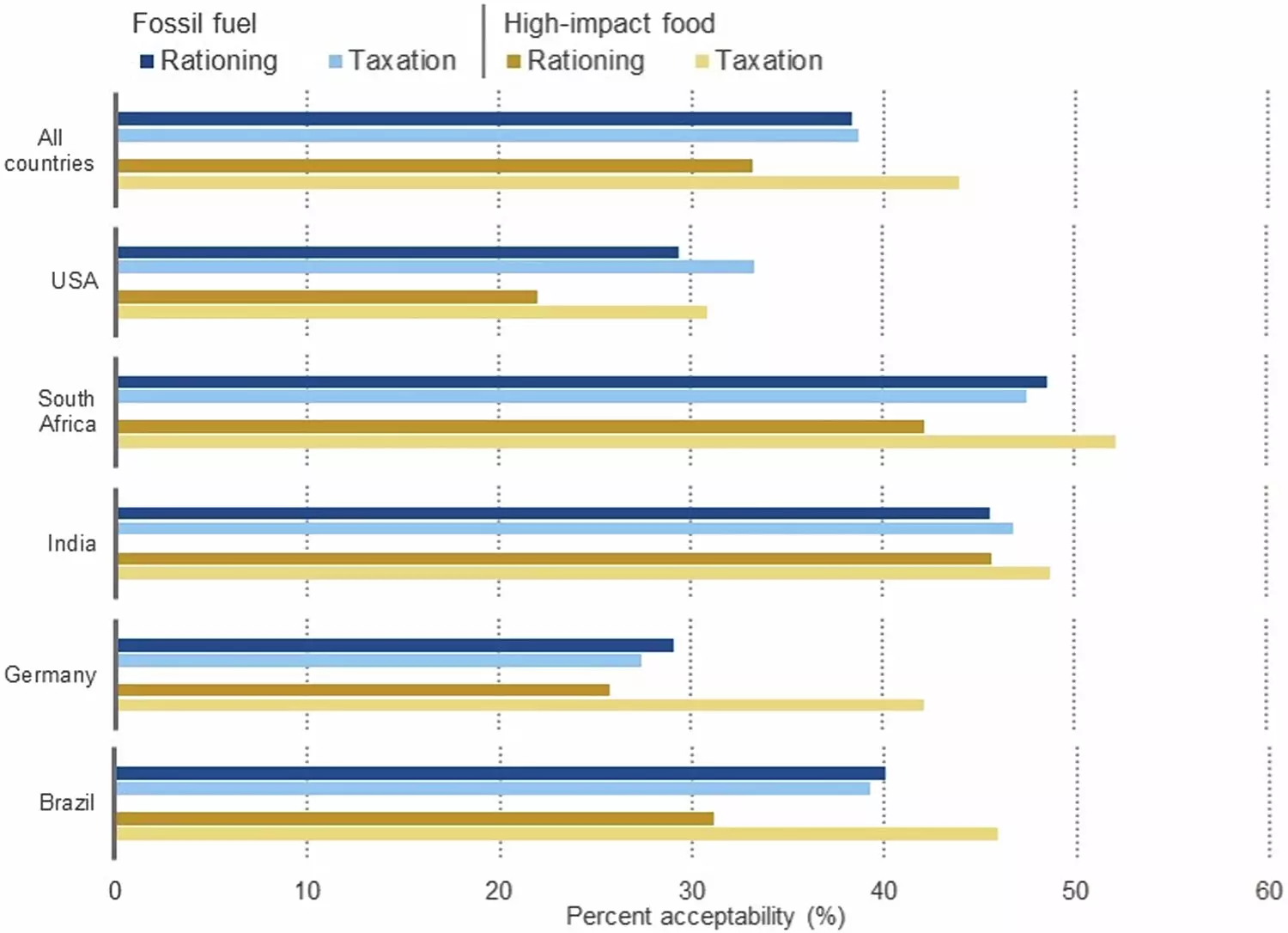In the discourse surrounding climate action, innovative strategies are crucial for achieving tangible results. A recent study conducted by the Climate Change Leadership Group at Uppsala University has shed light on one of these strategies: rationing essential goods such as meat and fuel. The study reveals a significant portion of the public—nearly 40%—is open to the idea of rationing as a fair method to reduce consumption and alleviate climate change. This level of acceptance is pivotal, as it suggests that people may be more willing to embrace rigorous measures when presented with the pressing realities of our climate crisis.
The notion of rationing can understandably evoke feelings of unease. However, as Oskar Lindgren, a doctoral student from Uppsala University, pointed out, it may not be as drastic as it appears when weighed against the magnitude of climate change. Rationing could provide an equitable solution, particularly if designed without regard to individuals’ income levels. Such an approach could create a perception of fairness, fostering greater public acceptance of policies aimed at promoting sustainability.
Equity plays a crucial role in how policies are received by the populace. The study underscored that policies perceived as fair tend to garner higher acceptance rates among the public. This is particularly important given that high-emissions goods like meat and fuel possess a dual nature: they are essential for everyday life but also contribute significantly to climate change. By implementing fair rationing, we may balance the need for these goods with our obligation to future generations.
Traditionally, many climate strategies have leaned towards economic instruments such as carbon taxes. However, this new research suggests that focusing explicitly on rationing could yield comparable, if not superior, results in gaining public support. The study analyzed the acceptability of rationing against traditional taxation methods in countries including Brazil, India, Germany, South Africa, and the United States. Surprisingly, the results indicated that the acceptance rate for fuel rationing was nearly on par with that of a fuel tax, with 38% in favor of rationing versus 39% for taxation.
Counterintuitively, the findings illustrated that rationing does not necessarily yield a negative perception among the public. For instance, many respondents from Germany showed greater opposition to fossil fuel taxes than they did towards rationing, suggesting a potential reassessment of how policies are framed to achieve higher acceptance. This indicates that the conventional view of taxes as a more acceptable climate measure might need revision.
The acceptability of these measures varied widely among the surveyed nations, highlighting cultural differences in attitudes towards climate action. In countries such as India and South Africa, individuals were more receptive to the idea of rationing compared to their counterparts in Germany and the United States, who exhibited strong resistance, especially to meat rationing. This divergence underscores the importance of tailoring climate policies to local contexts, taking into account cultural perceptions and values.
Furthermore, the demographic factors influencing support for rationing cannot be overlooked. The study found that younger and more educated individuals, particularly those with heightened concerns about climate change, were more inclined to endorse rationing methods. This insight could guide future outreach and education efforts to increase acceptance across broader demographics.
As the urgency of addressing climate change becomes increasingly critical, exploring alternative strategies such as rationing could represent a vital step forward. Water rationing is already a reality in various regions, demonstrating public willingness to limit resource consumption for climate mitigation as long as there is an equitable structure in place.
To facilitate this shift, further research is necessary to delve into public attitudes toward rationing and to refine policy instruments effectively. The encouraging findings from the Uppsala University study can guide policymakers in creating a consensus-driven approach that bolsters fairness and efficacy in climate action. As society moves forward, the challenge remains to communicate these policies in a manner that resonates with public sentiment, paving the way for sustainable consumption practices that are both equitable and effective.

